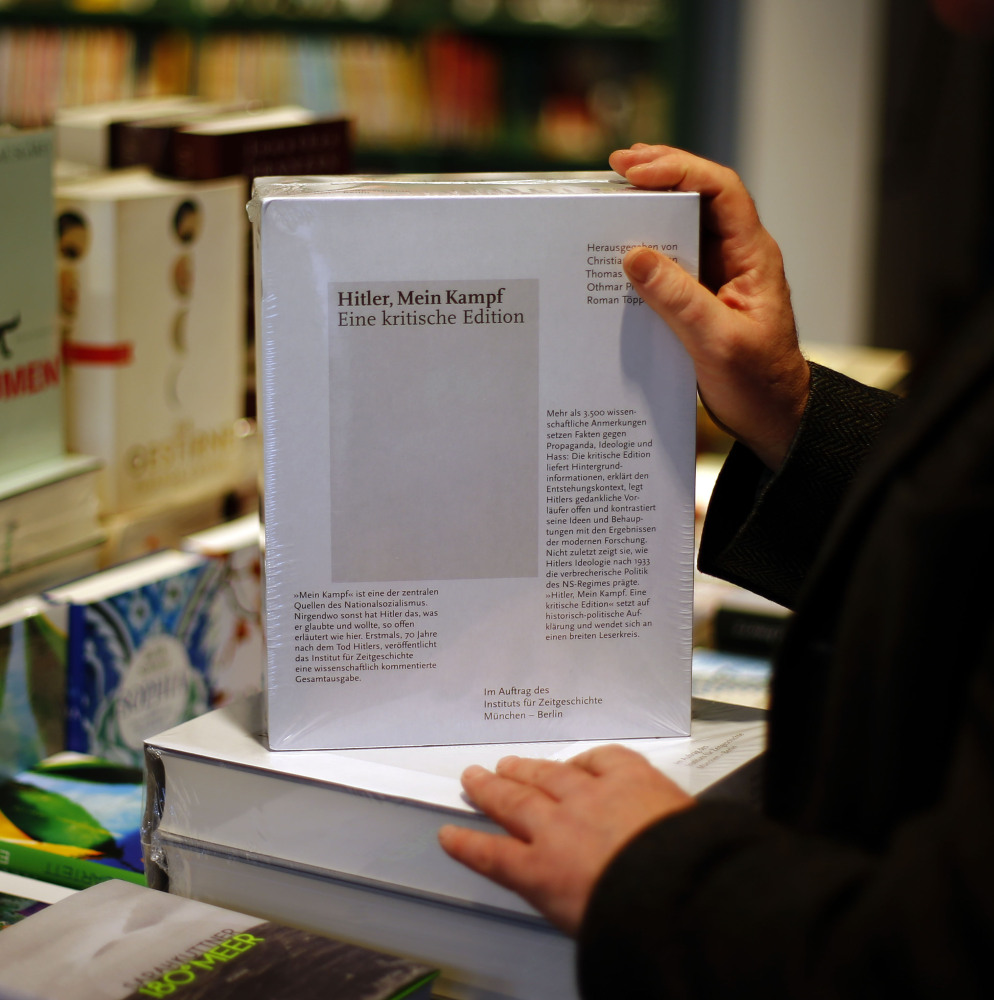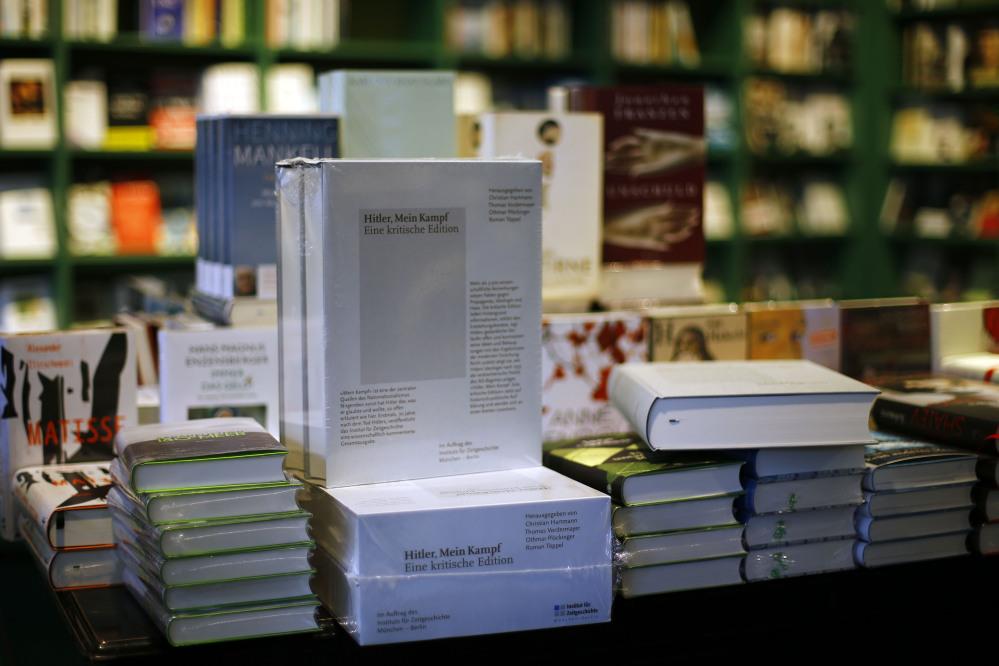MUNICH — An annotated edition of “Mein Kampf,” the first version of Adolf Hitler’s notorious manifesto to be published in Germany since the end of World War II, went on sale Friday in an effort to demystify the book and debunk the Nazi leader’s writing.
The Munich-based Institute for Contemporary History worked for several years on the plain-covered volume, officially titled “Hitler, Mein Kampf: A Critical Edition.” It launched the book days after the copyright of the German-language original expired at the end of 2015 – 70 years after Hitler’s death.
Over the years, Bavaria’s state finance ministry had used its copyright on the book to prevent the publication of new editions. The book wasn’t banned in Germany, though, and could be found online, in secondhand bookshops and in libraries.
The new edition is 1,948 pages, roughly double the original, and sets Hitler’s text amid extensive comments by historians that are meant to contradict and deflate his writing.
The new edition “sets out as far as possible Hitler’s sources, which were deeply rooted in the German racist tradition of the late 19th century,” said Andreas Wirsching, the Munich institute’s director. “This edition exposes the false information spread by Hitler, his downright lies and his many half-truths, which aimed at a pure propaganda effect.”
Hitler wrote “Mein Kampf” – or “My Struggle” – after he was jailed following the failed 1923 coup attempt known as the Beer Hall Putsch. The rambling tome set out his ultranationalist, anti-Semitic and anti-communist ideology, which would culminate in the Holocaust and a war of conquest in Europe. It is considered an important source for understanding the history of the Nazi regime.
“The problem with this book is that it isn’t just a historical source – it’s also a symbol,” said Christian Hartmann, who led the team putting together the annotated edition. “And our idea was to lay bare this symbol once and for all.”
Millions of copies were printed after the Nazis took power in 1933, and it was published after the war in other countries.
“At a time when the well-known formulae of far-right xenophobia are threatening to become … socially acceptable again in Europe, it is necessary to research and critically present the appalling driving forces of National Socialism and its deadly racism,” Wirsching said.
German authorities have made clear that they won’t tolerate any new editions without commentary.
Copy the Story LinkSend questions/comments to the editors.




Success. Please wait for the page to reload. If the page does not reload within 5 seconds, please refresh the page.
Enter your email and password to access comments.
Hi, to comment on stories you must . This profile is in addition to your subscription and website login.
Already have a commenting profile? .
Invalid username/password.
Please check your email to confirm and complete your registration.
Only subscribers are eligible to post comments. Please subscribe or login first for digital access. Here’s why.
Use the form below to reset your password. When you've submitted your account email, we will send an email with a reset code.